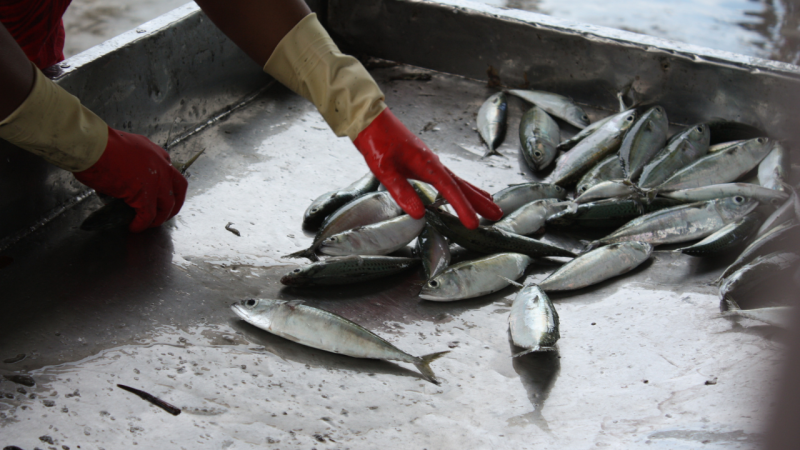Stock image of fish/INQUIRER FILES
The shipment of fish products at regional ports declined by 25.5 percent in November following the implementation of a temporary fishing ban in major fishing areas.
The Philippine Fisheries Development Authority (PFDA) said regional fish ports unloaded 37,018.50 metric tons (MT) of fish last month from 49,718.434 MT in the same period a year ago.
The figure was also lower than the unloading volume of 47,240.81 MT in October, declining for two months.
Among regional ports, the General Santos Fish Port Complex recorded the highest share in unloading volume at 42.9 percent or 15,864.03 MT despite experiencing a minor setback.
The Navotas Fish Port Complex came second with 38.9 percent or 14,386.14 MT as the number of municipal fishing vessels arriving in the area decreased.
The Iloilo Fish Port Complex and Bulan Fish Port Complex delivered 1,865.99 MT and 1,614.95 MT of fish to their clients, respectively.
The Lucena Fish Port Complex provided 1,503.63 MT of fishery products while the Zamboanga Fish Port Complex supplied 969.22 MT to consumers.
The Davao Fish Port Complex followed with 814.13 MT and the Camaligan Fish Ports with 0.405 MT.
The contraction in fish unloading volume occurred during the three-month closed fishing season in key fishing areas, a policy aimed at replenishing fish stocks.
It is a conservative measure implemented by the government annually to protect target fish species during their peak spawning period and address other concerns such as overfishing and climate change.
The closed fishing season is implemented in the Visayan Sea and Zamboanga Peninsula from Nov. 15 to Feb. 15 each year and Nov. 1 to Jan. 31 in Northern Palawan.
The Department of Agriculture (DA) and Bureau of Fisheries and Aquatic Resources (BFAR) stood pat at this policy despite calls to lift the temporary fishing ban as it causes an “artificial shortage” of fish resulting in importation.
“The closed fishing season creates an artificial shortage that justifies the importation of tons of fish. Ultimately, fishers are incurring losses because the value of their catch declines as the market is flooded with imported fish,” fishers’ group Pambansang Lakas ng Kilusang Mamamalakaya ng Pilipinas said earlier.
However, BFAR Executive Director Isidro Velayo Jr. said the policy is backed by scientific studies and local consultations, while Agriculture Secretary Francisco Tiu Laurel Jr. said this measure helps ensure sustainable fish production nationwide.


